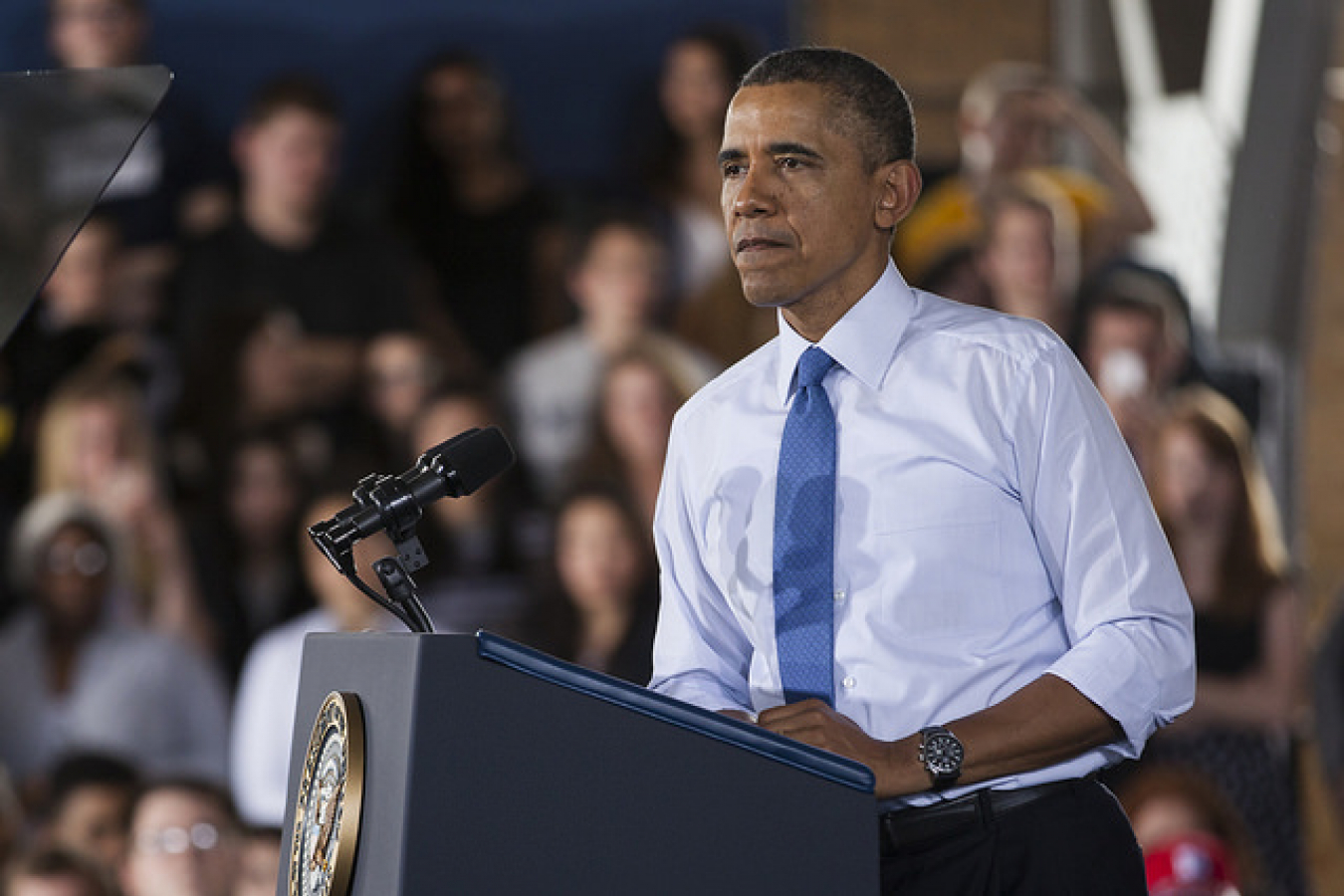Support migrant centric journalism today and donate

A US appeals court in Washington DC has set a date of May 4 to hear arguments concerning a challenge against President Barack Obama's immigration executive actions.
Lawsuit against Obama Executive Action
In December 2014, a federal judge dismissed a lawsuit brought by Joe Arpaio, an Arizona sheriff, who described Obama's sweeping changes as 'unconstitutional'. Apario lodged an appeal with the US Court of Appeals for the District of Columbia Circuit.
The lawsuit filed by Apario said the changes were effectively an amnesty and would encourage more people to enter the US illegally.
However, US District Judge Beryl Howell said: "The sheriff failed to conclusively prove that he would be directly affected due to the unilateral measures. The role of the Judiciary is to resolve cases and controversies properly brought by parties with a concrete and particularized injury — not to engage in policymaking better left to the political branches."
Howell, an Obama-appointee stated: "The plaintiff's case raises important questions regarding the impact of illegal immigration on this nation, but the questions amount to generalized grievances which are not proper for the Judiciary to address."
Ongoing battle
The Obama administration has been battling against actions attempting to stall immigration reforms designed to grant relief from deportation to 4.7 million people currently in the US illegally. Those opposed to the President's plans, including Joe Arpaio, say that the proposed immigration reforms are unconstitutional.
Recently, the US Department of Justice was denied an emergency stay to put on hold a Texas judge's decision that temporarily blocked Obama's executive actions. The Texas Judge had blocked executive actions after 26 states had pursued a lawsuit with the intention of preventing Obama's immigration reforms.
Congress
In Congress, the executive orders have also caused tensions, with House Republicans unsuccessfully threatening to withhold funding from the Department of Homeland Security, to try and prevent Obama's immigration reforms.
Coalition of states against Executive Action
The 26 states attempting to prevent Obama's executive action from progressing further asked a federal judge on March 3 not to lift a temporary hold on the immigration reforms. The coalition of 26 states, fronted by Texas, wrote in a 22 page court filing presented to US District Judge Andrew Hanen, in Brownsville Texas, that 'there's no emergency requirement to implement a sweeping new program.'
The document also said: "It is not in the public interest to allow (the U.S. government) to effect a breathtaking expansion of executive power, all before the courts have had a full opportunity to consider its legality."
Obama's orders
The first of Obama's orders – which involved expanding a program to protect young immigrants from deportation if they had arrived in the US illegally as children - Deferred Action for Childhood Arrivals (DACA) – was set to go ahead on February 18.
Secondly, Obama's orders would extend deportation amnesty to parents of US citizens and permanent residents who have resided in the US for a number of years - DAPA, Deferred Action for Parents of Americans and Lawful Permanent Residents. However, this order was not due to take effect until May 19.





















